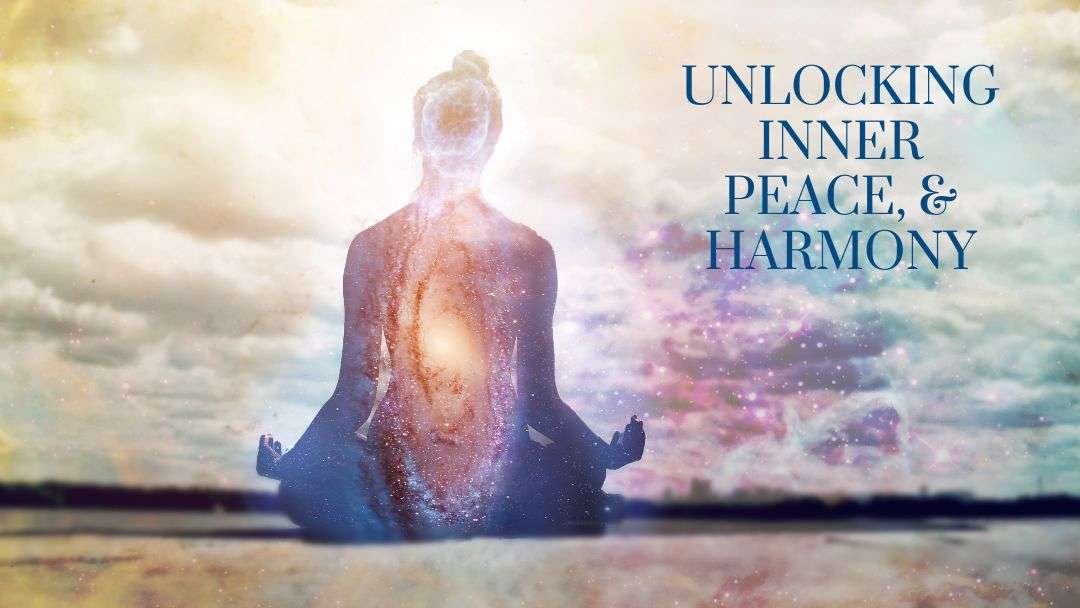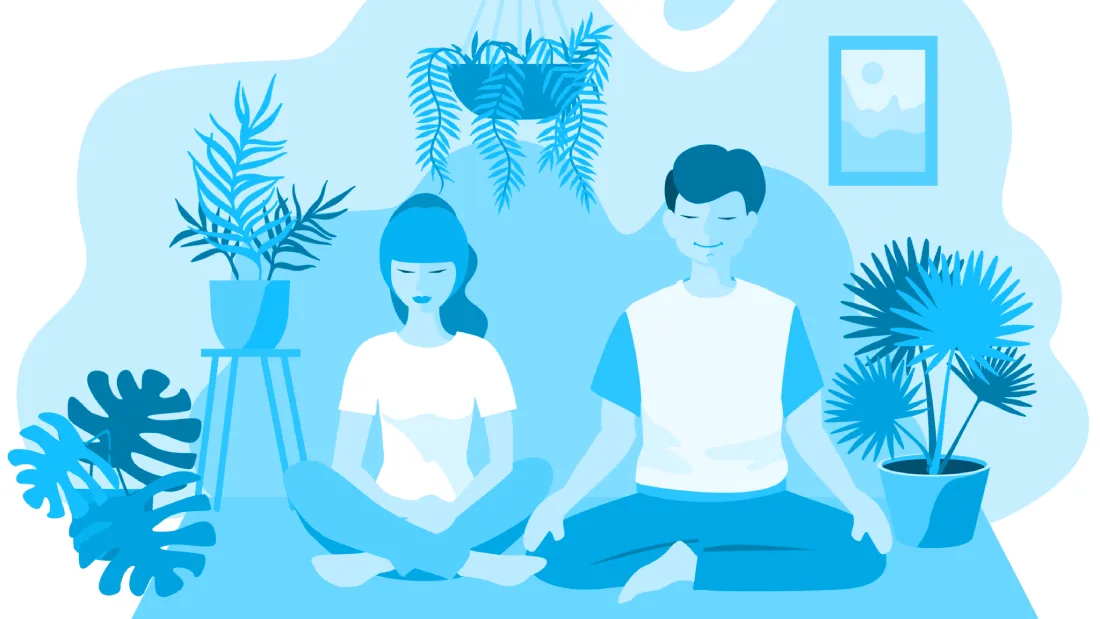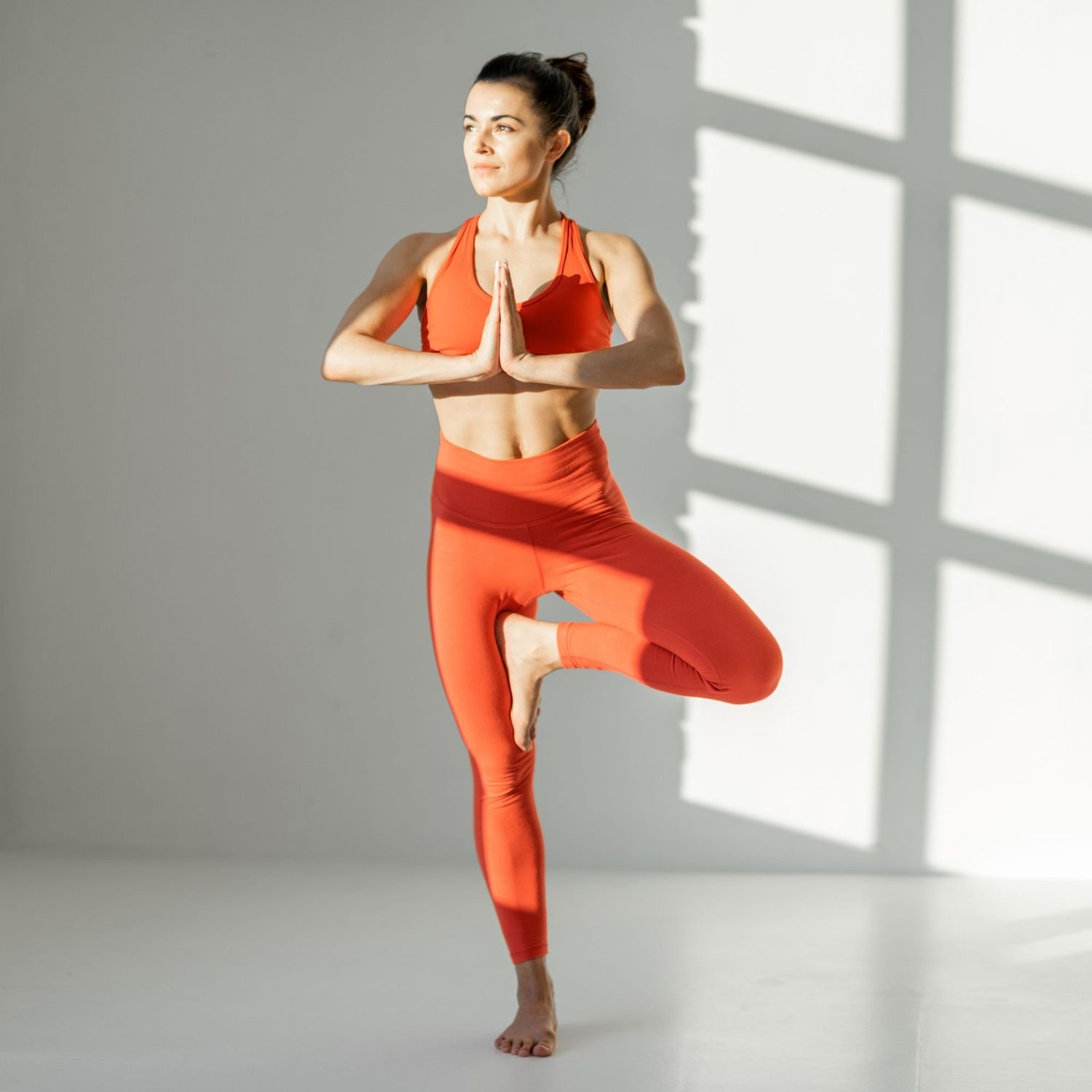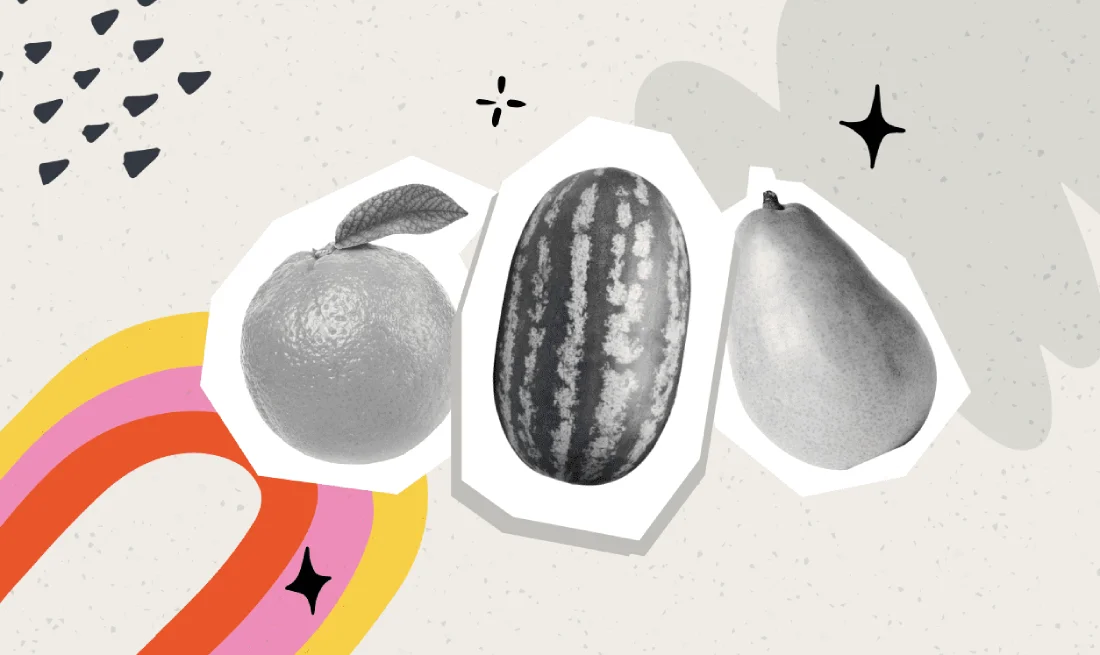Meditation for All is a practice that helps individuals relax, reduce stress, and improve focus and mental clarity. It is a technique that can be practiced by anyone, regardless of age, gender, or fitness level.
Meditation has been practiced for thousands of years and has become increasingly popular in modern times due to its numerous benefits. It is a simple yet powerful technique to help individuals connect with their inner selves, achieve a sense of peace, and improve their overall health and well-being.
Meditation is not limited to a specific age group, gender, or fitness level, making it accessible to everyone. It involves focusing one’s attention on a specific object, thought, or activity, helping individuals relax and reduce stress. We will explore the benefits of meditation, its different techniques, and how it can be practiced by anyone.

Credit: www.linkedin.com
The Power Of Meditation
Meditation is a practice that is accessible to everyone, regardless of age or experience. Its benefits include reduced stress levels, improved focus, and increased well-being. Incorporating meditation into your daily routine can help promote a more peaceful and mindful life.
Meditation has been around for centuries, and for a good reason. The practice of meditation can bring lots of benefits to our mental and physical health, which is why it has gained popularity all over the world.
Benefits Of Meditation
Meditation can help us on many different levels. Here are some of the most important benefits of meditation:
- Reduced stress and anxiety
- Improved focus and concentration
- Better sleep quality
- Increased self-awareness
- Greater emotional stability
- Lower blood pressure
- Improved immune system
Types Of Meditation
There are different types of meditation, and each one can provide unique benefits. Here are some popular types of meditation:
| Type of Meditation | Description |
| Vipassana Meditation | A traditional Buddhist meditation that focuses on self-observation and awareness of breath and body sensations |
| Transcendental Meditation | A mantra meditation technique that involves silently repeating a specific word or sound |
| Loving-Kindness Meditation | A practice that involves cultivating feelings of love, kindness, and compassion for oneself and others |
| Mindfulness Meditation | A practice that involves paying attention to the present moment without judgment |
No matter what type of meditation you choose, practicing it on a regular basis can have a positive impact on your life. So, give it a try and explore the power of meditation yourself!
Preparing For Meditation
Preparing for meditation is a simple and accessible practice for everyone. Find a quiet space, sit in a comfortable position, and focus on your breath. With consistency and patience, anyone can develop a regular meditation practice and reap the many benefits for the mind and body.
Meditation is a powerful tool for achieving inner peace and reducing stress. Whether you’re new to meditation or an experienced practitioner, it’s important to create the perfect environment that helps you relax and focus. Here are some steps that you can take to prepare yourself for a fulfilling meditation session.
Setting Up A Meditation Space
Choose a dedicated spot in your home or office where you can meditate in peace. Make sure that the space is quiet, clutter-free, and comfortable. Decorate your meditation space with calming elements like plants, candles, or artwork. Keep your smartphone or any distractions away from the area. Your meditation space should be a sanctuary that inspires calmness and promotes mental clarity.
Choosing A Time To Meditate
Find a time that fits your schedule and stick to it. Mornings are often best, as you can set the tone for your day with a clear and focused mind. However, if your morning is hectic, you may prefer to meditate in the evening before going to bed. Choose a time that works for you and commit to creating consistent meditation habits.
Wear Comfortable Clothing
It’s essential to wear comfortable clothing that does not restrict your movement or breathing during meditation. Loose-fitting clothes are ideal as they allow better circulation of blood throughout the body and promote deep breathing, which is critical to reaping the full benefits of meditation.
Conclusion
Preparing for meditation is about setting a stage that helps you clear your mind and find your inner peace. You don’t need a specific religious affiliation or to invest in expensive equipment to meditate; it’s about finding a peaceful place within yourself. By following these steps, you can create a comfortable, relaxing environment for your meditation sessions, making it easier for you to engage in regular meditation practice.
Meditation Techniques For Beginners
Beginners can easily learn diverse meditation techniques to calm their minds and improve their overall health. By focusing on the breath, mantra or a visual image, meditation helps in reducing stress and anxiety, sharpening concentration, and providing mental clarity.
Meditation is a practice that can provide many benefits to both the mind and body, including reducing stress, improving concentration and focus, and enhancing overall well-being. If you’re new to meditation, it can be overwhelming to know where to start. That’s why we’ve compiled some easy yet effective meditation techniques for beginners that you can try today!
Breathing Meditation
One of the simplest and most common forms of meditation is breathing meditation. This technique helps you focus on your breath, which can help calm the mind and relax the body. Here’s how to do it:
- Find a quiet and comfortable place to sit or lie down.
- Close your eyes and focus on your breath.
- Breathe deeply and slowly, inhaling through your nose and exhaling through your mouth.
- Count each breath in and out, up to 10. If your mind starts to wander, gently bring it back to your breath.
- Repeat for a few minutes and gradually increase the time as you feel more comfortable.
Body Scan Meditation
Body scan meditation is another simple and effective technique that can help you become more aware of your body and reduce stress. Here’s how to do it:
- Lie down on your back in a quiet and comfortable place.
- Close your eyes and focus on your breath.
- Starting from your toes, focus on each area of your body one at a time.
- Notice any tension or discomfort and try to release it as you exhale.
- Gradually move up your body, focusing on each area until you reach the top of your head.
- Take a deep breath and slowly exhale.
- Take a few more deep breaths and when you’re ready, slowly open your eyes.
These two meditation techniques are great for beginners and can help you get started on your meditation journey. With practice, you’ll find that meditation can become an enjoyable and rewarding part of your daily routine.

Credit: anunstoppablelife.com
Advanced Meditation Techniques
Meditation is a powerful tool to enhance your mental and physical well-being. While basic meditation techniques can help you relieve stress and calm your mind, advanced meditation techniques take your practice to a deeper level. Advanced meditation techniques offer a wide range of benefits such as improving focus, self-awareness, and even self-realization. This article will explore some of the advanced meditation techniques you can try to take your practice to the next level.
Mindfulness Meditation
Mindfulness meditation is a type of meditation that involves paying attention to the present moment without any judgments, criticisms, or distractions. This technique helps you develop a sense of awareness and focus that can help you manage your stress, anxiety, and other negative emotions. Here are some tips to help you get started with mindfulness meditation:
- Find a quiet place where you won’t be disturbed.
- Sit comfortably with your legs crossed and your hands resting on your knees.
- Close your eyes and take a few deep breaths to relax your body and calm your mind.
- Focus on your breath – the sensation of the air moving in and out of your body.
- If you find your mind wandering, gently bring your attention back to your breath.
- Practice for at least 10 minutes a day, gradually increasing the duration of your practice.
Transcendental Meditation
Transcendental meditation is a type of meditation that uses a mantra or sound to help you transcend or go beyond your thoughts and emotions. This technique is easy to learn and can be practiced by anyone regardless of their age or background. Here’s how you can practice transcendental meditation:
- Find a quiet place where you won’t be disturbed.
- Sit comfortably with your eyes closed and take a few deep breaths to relax your body and calm your mind.
- Choose a mantra that resonates with you and silently repeat it to yourself.
- Focus on the sound of your mantra and let go of any thoughts or distractions.
- Practice for 20 minutes twice a day, preferably in the morning and evening.
Whether you choose mindfulness or transcendental meditation, the key to advanced meditation techniques is to practice regularly and with dedication. Don’t get discouraged if you find it difficult at first – with time and practice, you’ll start experiencing the benefits of deeper levels of meditation.
Common Challenges In Meditation
Meditation for all can be challenging due to common obstacles like racing thoughts, physical discomfort, and struggling to stay focused. However, consistent practice and patience can overcome these challenges, leading to improved mental and physical well-being.
Meditation is a powerful tool for improving mental health, reducing stress, and achieving inner peace. However, like any new skill or habit, it can be difficult to master. When starting with meditation, one may experience some challenges that can make the practice feel frustrating or overwhelming. In this blog post, we’ll explore some of the most common challenges that people face when meditating and provide tips for overcoming them.
Difficulty Focusing
One of the most significant challenges that individuals face when meditating is difficulty focusing. Many people get easily distracted by the thoughts running through their minds or the sounds around them, making it hard to concentrate on their breath or the object of their meditation.
To overcome this challenge, you can try the following tips:
- Start with shorter meditation sessions: Begin with just five minutes of meditation and gradually increase the duration over time.
- Create a dedicated meditation space: Try to meditate in a quiet, distraction-free environment where you can focus on your practice.
- Use a guided meditation app: Guided meditation apps can help you focus on the words and instructions provided by the teacher, preventing your mind from wandering.
Frustration With Slow Progress
Another common challenge that people face when meditating is frustration with slow progress. Many individuals may expect to see immediate changes in their mental state or may feel as though they’re not making progress despite regular meditation practice.
To overcome this challenge, you can try the following tips:
- Set realistic expectations: Understand that meditation is a skill that takes time to develop, and progress may be slow, but it will come with time.
- Track your progress: Keep a meditation journal to record your thoughts and feelings after each practice session. Over time, you’ll be able to look back and see your progress.
- Focus on the process rather than the outcome: Remember that meditation is not about achieving a specific goal but about enjoying the journey and the benefits that come with regular practice.
In conclusion, when starting with meditation, it’s essential to be patient and gentle with yourself. Remember that there is no right or wrong way to meditate, and everyone experiences challenges along the way. By following these tips and staying committed to your practice, you’ll develop the skills and mindset needed to experience the many benefits of meditation.
Incorporating Meditation Into Daily Life
Incorporating meditation into daily life can provide numerous benefits, regardless of your experience level. By dedicating as little as 10 minutes each day to mindfulness and breath-focused practices, you can enhance feelings of calmness, alleviate anxiety, and support overall well-being.
Meditation can help you stay calm, focused, and centered and can make a significant difference in your overall well-being when you incorporate it into your daily life. There are many different ways to integrate meditation into your routine, from setting aside time for a formal practice to taking a few moments to focus on your breath throughout the day. Here are a few simple methods that can help you incorporate meditation into your daily life:
Meditation Apps
One of the easiest ways to start a daily meditation practice is to use a meditation app. These apps provide you with guided meditations, meditative exercises, and other tools to help you develop your practice. Some of the most popular meditation apps include Headspace, Calm, Insight Timer, and 10% Happier. These apps are designed to be user-friendly and accessible, so even if you have never meditated before, you can start incorporating meditation into your daily routine.
Meditation Groups
Another option for incorporating meditation into your daily life is to join a meditation group. There are many different types of meditation groups, from those that focus on mindfulness practices to those that specialize in specific traditions or techniques. These groups offer a supportive environment for beginners, as well as more experienced meditators, and can provide you with guidance and feedback on your practice. Some places to search for a meditation group in your area include local yoga studios, community centers, and religious organizations.
Conclusion
By incorporating meditation into your daily life, you can improve your mental clarity, reduce stress and anxiety, and enhance your overall well-being. If you’re new to meditation, don’t worry – there are many easy and accessible ways to get started. Whether you use a meditation app or join a group, the most important thing is to commit to a regular practice and be patient with yourself as you develop your skills. With time and dedication, you’ll be able to reap the benefits of meditation and enjoy a more peaceful and centered life.
Cultivating A Meditative Mindset
Cultivating a meditative mindset is essential for everyone seeking inner peace and mental clarity. Meditation for all can reduce stress and anxiety, leading to a more balanced and fulfilling life. By investing a few minutes regularly, one can notice significant improvements in overall well-being.
Meditation is an effective technique to cultivate a meditative mindset. It helps in calming the mind, reducing stress, and promoting relaxation. However, the benefits of meditation go beyond physical relaxation and mental peace. Cultivating a meditative mindset paves the way for conscious living and self-discovery. In this post, we will discuss various approaches to cultivate a meditative mindset, including gratitude practice and journaling.
Gratitude Practice
Practicing gratitude is an excellent way to cultivate a meditative mindset. Gratitude practice requires focusing on the present moment and appreciating the simple things in life. It is about developing a sense of contentment and joy in everyday experiences. To practice gratitude, take a few minutes each day to reflect on the positive things in your life. You can make a gratitude list or simply think about the things you are grateful for. This simple exercise can help you cultivate a more positive outlook on life.
Journaling
Journaling is a powerful tool for cultivating a meditative mindset. It helps to clear the cluttered mind and gain clarity and insight into your inner thoughts and emotions. Journaling is a form of self-reflection and a means of self-expression. It can help you process difficult emotions and gain a deeper understanding of yourself. To begin journaling, set aside a few minutes each day to write down your thoughts and feelings. You can use prompts or write freely. This practice can help you develop a deeper understanding of yourself and your inner world.
In conclusion, cultivating a meditative mindset requires intentional practice and patience. By incorporating gratitude practice and journaling into your daily routine, you can develop a more peaceful and conscious mindset. These practices can help you gain insight into your inner world and develop a more positive outlook on life. Start small, be consistent, and enjoy the benefits of a meditative mindset.

Credit: medium.com
Achieving Inner Peace Through Meditation
Discover the benefits of achieving inner peace through meditation, a practice that everyone can adopt. By focusing on your breath and clearing your mind, you can reduce stress and anxiety, boost your mood, and improve your overall well-being.
Meditation, a technique that has been practiced for centuries, is an effective way of achieving inner peace. Finding inner peace can be tough in today’s fast-paced life, but meditation can help calm your mind, reduce stress, and achieve inner harmony. In this post, we will explore how meditation can help you achieve inner peace and connect with your inner self, finding joy in the present moment.
Connecting With Your Inner Self
Meditation is a great tool to connect with your inner self. It helps you understand your thoughts, emotions, and feelings. By sitting in silence and focusing on your breath, you can calm your mind and let go of the worries that flood your mind on a daily basis. As you meditate, you will start to gain greater self-awareness and self-understanding. By connecting with your inner self, you can gain a better understanding of your purpose in life.
Finding Joy In The Present Moment
Meditation helps you focus on the present moment and enjoy life. Most of us spend our lives worrying about the future or regretting the past, which often leads to anxiety and stress. By meditating, you can train your mind to focus on the present moment and appreciate the simple things in life, such as your breath, the sensation of sunlight on your skin, or the sound of birds chirping. With regular practice, you will learn to enjoy every moment of your life and achieve true happiness.
To sum it up, meditation is an effective way to achieve inner peace. By connecting with your inner self and finding joy in the present moment, you can reduce stress and anxiety, and live a happier life. Start meditating today and experience the benefits of inner peace firsthand.
Frequently Asked Questions Of Meditation For All
Can Meditation Be For Everyone?
Yes, meditation can be practiced by anyone regardless of age, religion, gender, or culture. It is a universal practice that can benefit individuals of all backgrounds and lifestyles. With regular practice, anyone can develop the skill of mindfulness and experience the benefits of meditation.
Which Is The Powerful Meditation In The World?
The most powerful meditation in the world can vary based on different factors such as personal beliefs and preferences. However, some of the most well-known and highly recommended meditation practices for reducing stress, anxiety, and improving overall mental health include mindfulness meditation, transcendental meditation, and loving-kindness meditation.
It’s best to try out various meditation practices to find the one that works best for you.
What Is The Highest Form Of Meditation?
The highest form of meditation is subjective, as it depends on individual preferences and goals. Some consider transcendental meditation as the highest form, while others believe mindfulness or Vipassana meditation is the best. It ultimately comes down to personal experience and finding what works best for you.
Why Is Meditation So Powerful?
Meditation is powerful because it helps to calm the mind, reduce stress and anxiety. It also improves focus, concentration and cognitive function. Additionally, it helps to increase self-awareness, improve emotional regulation and promote feelings of well-being and happiness. Regular practice of meditation can bring about profound positive changes in mental and physical health.
Conclusion
Meditation is not just for monks, it is for everyone. It can help reduce stress, calm your mind, and improve your overall health and wellbeing. With modern technology, meditation is easily accessible to anyone, anywhere, anytime. By incorporating just a few minutes of daily meditation into your routine, you can experience the benefits for yourself.
So, give it a try and let meditation be your guide to a healthier and happier life.











